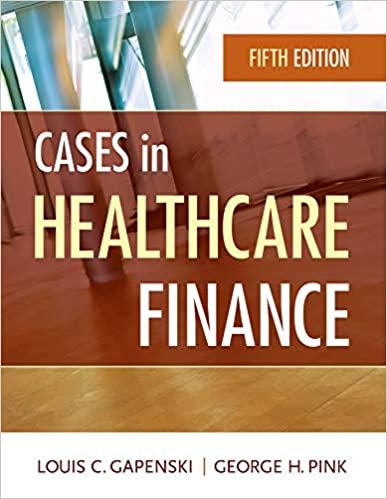Question
It contains projected operating results for the 2005 leveraged buyout of Toys R Us by a private equity consortium consisting of KKR, Bain Capital, and

It contains projected operating results for the 2005 leveraged buyout of Toys R Us by a private equity consortium consisting of KKR, Bain Capital, and Vornado Realty Trust. The shaded cells need to be filled in.
You are working as an analyst for the private equity group to evaluate the potential deal. Use the following assumptions to answer the questions below:
The total purchase price of $8 billion is funded with $6.7 billion in total debt and the remaining $1.3 billion in equity. The interest rate on the debt is 8%. The private equity group plans to exit the investment in 2010 and estimates it will be able to sell at an Enterprise Value / EBITDA multiple of 9.0 (similar to the current industry average). They will use all available cash flow prior to exit to pay down debt each year. The firm will have $1.25 billion in cash, which is expected to remain constant through the investment horizon. The corporate tax rate is 35%. Assume the deal closed at the end of fiscal 2005. The unlevered asset beta for Toys R Us is 0.85. At the proposed capital structure, the debt beta would be 0.3. Risk-free rate (rf) = 4% and market risk premium (rm - rf) is 6%.
1) Calculate the IRR of the investment from the private equity group's perspective. 2) Will the private equity group be willing to make the investment given these assumptions? Estimate the IRR of this investment for the private equity group and compare it to the appropriate hurdle rate. 3) Suppose that due to regulatory concerns, banks were unwilling to lend more than $5 billion to fund the deal, but the total purchase price remains $8 billion. How would this affect the private equity group's estimated IRR? Will the private equity group go ahead with the investment?
Pre-tax income Taxes (35\%) Net Income Capital expenditures NWC 217.50.1209.11.3208.10.3214.82222.82.3 CF available to pay down debt Debt balance 6700 Pre-tax income Taxes (35\%) Net Income Capital expenditures NWC 217.50.1209.11.3208.10.3214.82222.82.3 CF available to pay down debt Debt balance 6700Step by Step Solution
There are 3 Steps involved in it
Step: 1

Get Instant Access to Expert-Tailored Solutions
See step-by-step solutions with expert insights and AI powered tools for academic success
Step: 2

Step: 3

Ace Your Homework with AI
Get the answers you need in no time with our AI-driven, step-by-step assistance
Get Started


